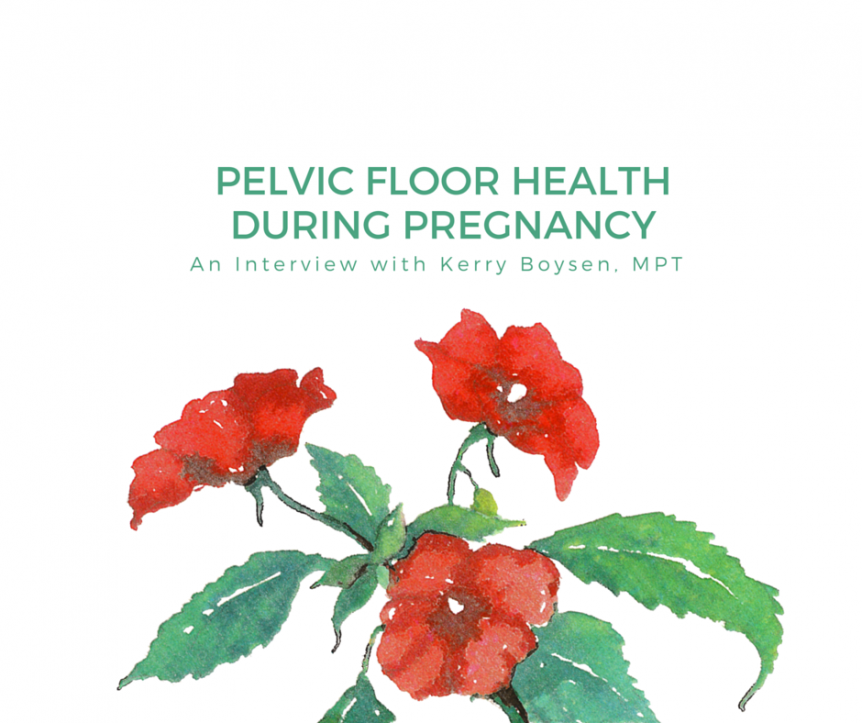Tell our readers more about yourself and what you do!
My name is Kerry Boysen, and I am a physical therapist that specializes in Women’s Health physical therapy. I recently opened my own practice, Restore Physical Therapy here in Corvallis. There is a need in the Mid-Willamette Valley for the types of services I provide, and that need was not being met. It has been a dream come true to make this clinic a reality. I am a wife. I am a mother of two elementary aged kiddos. I have many relationships that I like to give energy to, including making time for myself. So having my own business allows me to try and balance all these pieces. I knew when I was in 7th grade that I wanted to be a physical therapist, and I have never regretted taking this path. I absolutely love what I do.
I was a biology major at Wartburg College in Waverly, Iowa, and then went on to get my Master of Physical Therapy degree at The University of Iowa. I have been practicing PT since 1997, and began to focus my continuing education and practice on Women’s Health in 2004. My specialized training includes Pelvic Floor Physical Therapy Certification (CAPP-PF) through the American Physical Therapy Association’s Section on Women’s Health, and I will complete the Obstetric Physical Therapy Certification (CAPP-OB) in 2016. I have 18 years of clinical experience.
What’s important about pelvic floor health for women? What problems can poor pelvic floor health cause?
Having a healthy pelvic floor means providing support to the organs in the pelvis; providing stability to the sacroiliac joints, hips and low back; and maintaining regular bladder and bowel habits. If your pelvic floor is under active, you may experience incontinence, pelvic organ prolapse, SI joint, hip or low back pain. If your pelvic floor is overactive, you may experience pain with intercourse, tampon use, or gynecological exams; constipation or irritable bowel syndrome; or urgency and frequency of urination.
What can mothers do during pregnancy to promote postpartum pelvic floor health?
During pregnancy you should be using your pelvic floor muscles on a daily basis. This means doing active contractions, in the form of Kegels, squats & regular walking, to bring good blood flow to those muscles and help keep them healthy. A pelvic floor muscle that has been contracted and relaxed regularly will be ready to work in the labor and delivery process. A healthy pelvic floor will be less likely to tear during delivery. And a pelvic floor that has been contracting and relaxing throughout pregnancy will heal more quickly postpartum.
What are the first things a mother who is having trouble with pelvic floor dysfunction should try? What are the signs she should get professional help?
You should return to pelvic floor contractions immediately after delivery to restore your pelvic floor health. If you notice 4-6 weeks after delivery that you are having incontinence, or pain, and you have returned to doing pelvic floor contractions consistently, you may want to see me at Restore Physical Therapy. It is not normal to be leaking urine (or feces) or to be having pain just because you have delivered a baby. These symptoms can be present after either a vaginal or Cesarean delivery.
What’s the biggest mistake most women make with regard to pelvic floor health?
I think the biggest mistake we make as women is diminishing our symptoms and allowing ourselves to believe that what we are experiencing is “normal”. I meet women every week who have lived with their symptoms of incontinence or pain for YEARS, and within 1-3 treatment sessions their symptoms are well on the way to being resolved.
What services do you offer? What’s the best way for someone to get in touch with you and learn more?
At Restore Physical Therapy I offer both antenatal and postpartum physical therapy services. Here is a list of some of the conditions I treat:
Back Pain Piriformis Syndrome
Cesarean Birth Recovery Pubic Symphysis Pain
Tailbone Pain (Coccygodynia) Rib Pain
Diastasis Recti Round Ligament Pain
Dyspareunia (Painful Intercourse) Sacroiliac (SI) Joint Dysfunction
Incontinence (urinary/fecal) Scar Tissue/Adhesions
Orthopedic Conditions–from head to toe! Sciatica
Osteoporosis Vaginismus
Pelvic Organ Prolapse Vestibulodynia
Pelvic Floor Conditions Vulvodynia
Pelvic Pain/Dysfunction
My treatment techniques include: postural alignment/correction, breathing techniques, abdominal and lumbosacral stabilization, muscle energy technique, myofascial release, soft tissue mobilization, strain counterstrain, joint mobilization, kinesiotaping, therapeutic exercise, and specific pelvic floor training. My approach is very hands-on, and I strive to get to the root cause of your symptoms.
You can reach me by phone at 541.908.7959, via email at ptrestore@gmail.com, or through my website www.restoreptcorvallis.com. Restore Physical Therapy is a cash-based practice. This means I do not directly bill insurance, but I provide you with the necessary information to self-submit for reimbursement directly from your insurance provider. This allows me to keep my costs down, which keeps your costs down. I charge $150 for an Initial Evaluation (75-90min), and follow-up visits are $120 for 60 min, $90 for 45 min, and $60 for 30 min.



